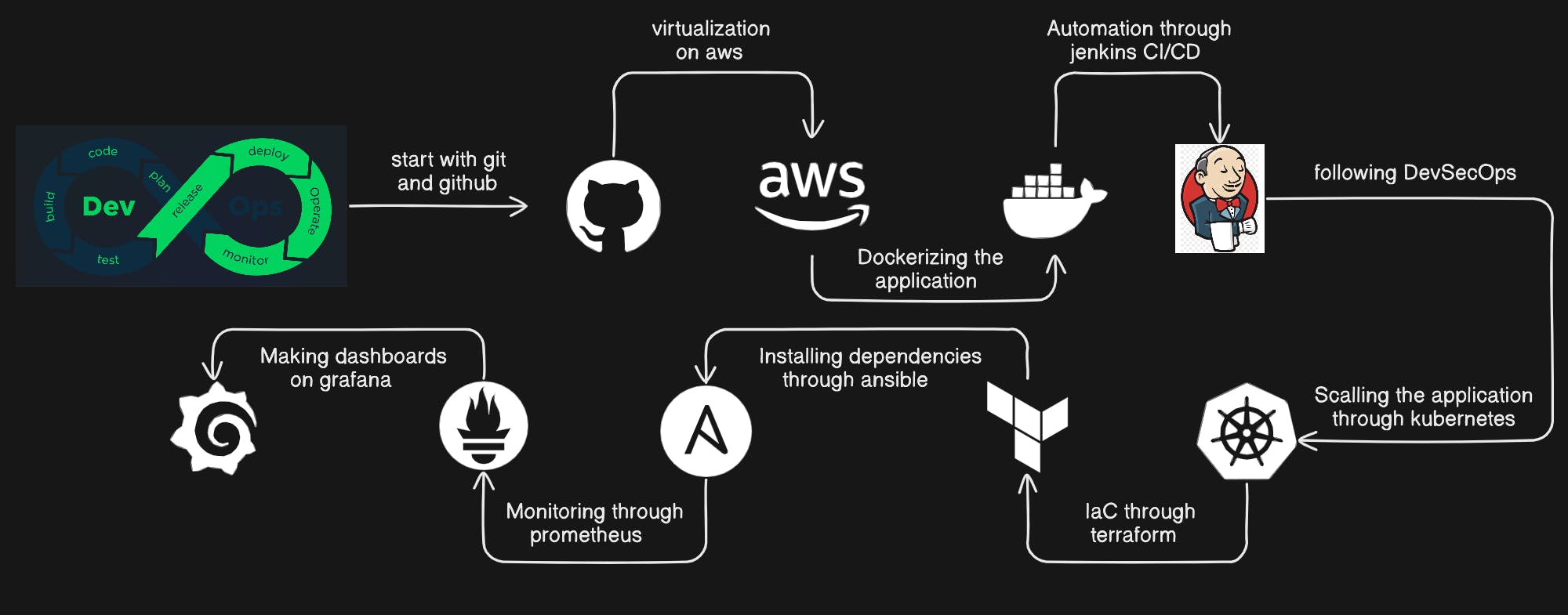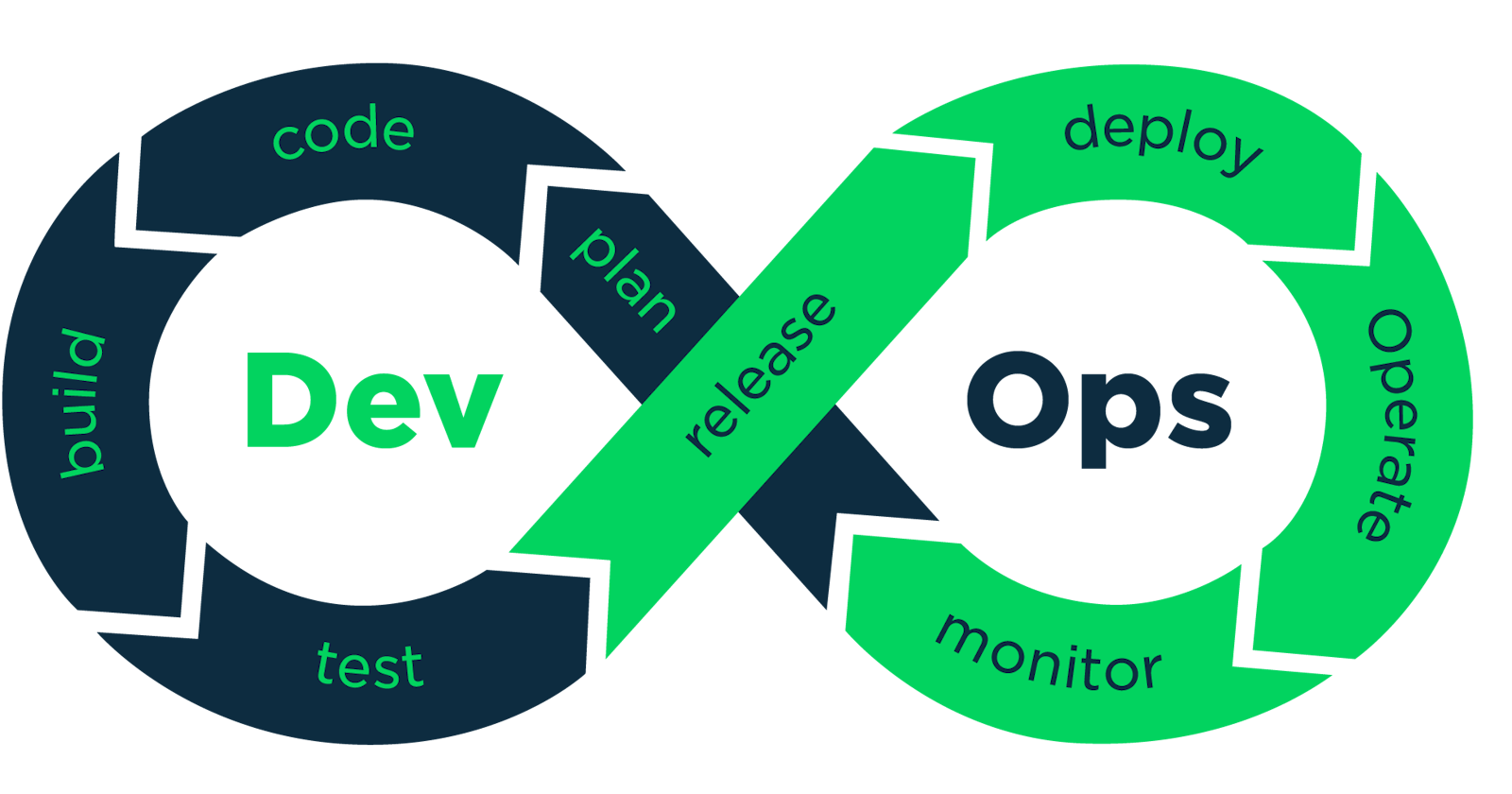Introduction:
I'm excited to embark on this journey with TrainWithShubham, delving into the intricacies of the three-tier architecture and expanding my expertise in DevOps. Through hands-on experience with live, production-ready open-source projects, I aim to enhance my understanding and skills. I'll be documenting my progress through blogs, so stay tuned for updates as I share my newfound knowledge.

Understanding DevOps Tools
In my journey through the boot camp, I'll start by delving into virtualization on the AWS cloud, where I'll learn to create and manage virtual servers and resources. This will provide me with a solid foundation for deploying applications across various devices or cloud environments using Docker. As I progress, I'll explore Docker Compose, a tool for defining and running multi-container applications, and Docker Hub, a repository for storing and sharing Docker images. Jenkins will be my next focus, enabling me to automate the building, testing, and deployment of software projects through continuous integration. Security will be a priority, and I'll adopt DevSecOps practices, integrating tools like SonarCube Analysis and adhering to OWASP guidelines to ensure the security of my applications. Eventually, I'll advance to Kubernetes for scalable container orchestration. Along the way, I'll gain proficiency in Terraform for infrastructure as code, Prometheus for monitoring, and Grafana for visualization. Additionally, contributing to an open-source travel blog project will provide me with practical experience, reinforcing my learning in a real-world context. Through this comprehensive journey, I aim to become proficient in modern DevOps practices and tools, ready to tackle real-world challenges effectively.
And hence...

Understanding DevOps Methodology
DevOps is a way of working that brings together the development (Dev) and operations (Ops) teams in software projects. The "Dev" part focuses on creating the software, which includes writing code, building it, testing it thoroughly, deploying it to servers, and keeping an eye on how it performs. On the other hand, the "Ops" part involves managing the infrastructure where the software runs, ensuring it's available, secure, and performing well.
DevOps is important because it helps teams work together smoothly, making the process of creating and delivering software more efficient and reliable. Instead of developers working separately from operations teams, DevOps encourages collaboration between them throughout the entire software development lifecycle.
The methodology of DevOps emphasizes a few key things:
Collaboration: DevOps encourages developers, testers, operations engineers, and other team members to work closely together. By breaking down silos and sharing knowledge, teams can solve problems faster and deliver better software.
Automation: DevOps relies heavily on automation to streamline repetitive tasks, such as building and testing code, deploying updates, and monitoring performance. Automation helps teams work faster and reduces the chance of errors.
Continuous Integration and Continuous Deployment (CI/CD): DevOps promotes the practice of continuously integrating code changes into a shared repository, running automated tests, and deploying updates to production environments quickly and safely. This allows teams to deliver new features and fixes to users more frequently and reliably.
Monitoring and Feedback: DevOps teams continuously monitor the performance and health of their software in production environments. This allows them to quickly detect and respond to issues, gather feedback from users, and make improvements over time.
Overall, DevOps is about fostering a culture of collaboration, automation, and continuous improvement to deliver better software faster and more reliably.
Role of DevOps Engineers
DevOps engineers play a crucial role in software development by managing tasks such as building and deploying applications using tools like Docker and Kubernetes. They're responsible for ensuring that the development, testing, and deployment processes run smoothly. The boot camp aims to teach them the best practices and tools for monitoring systems and setting up environments effectively. It also highlights the importance of understanding three-tier applications and being available to handle any project issues that may arise.
In simpler terms, a DevOps engineer's job involves making sure that the software development process goes smoothly from start to finish. They use various tools and techniques to automate tasks, monitor systems, and ensure that applications are deployed correctly. Additionally, they need to understand the structure of different types of applications and be ready to tackle any problems that come up during the project.
Conclusion:
In short, DevOps brings developers and operations together to make software better and faster. DevOps engineers use tools like Docker and Kubernetes to automate tasks like building and launching apps. The boot camp teaches them how to monitor systems and set things up efficiently. They also work on a real project, like improving a travel blog, to put their skills into practice. Overall, the goal is to work as a team, automate tasks, and deliver great software smoothly.
https://youtu.be/ANfC1u_N_A0?si=Kf2I3lcBh2Q6pvDE
Leaving the YouTube link for more info
